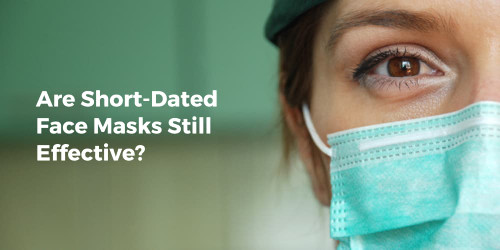What is Vitamin E?
Vitamin E is a fat-soluble vitamin with several forms, but alpha-tocopherol is the only one used by the human body. It is an important part of the central nervous system, vision, reproduction, the health of your blood, brain and skin.
What are the Benefits of Vitamin E?
• Antioxidant Properties: Vitamin E has antioxidant properties that help protect the body from damage caused by free radicals. Free radicals are unstable molecules that can damage cells and contribute to the development of chronic diseases such as cancer, heart disease, and Alzheimer's disease.
• Immune System: Vitamin E plays a crucial role in maintaining a healthy immune system. It helps the body fight off infections and diseases by boosting the production of white blood cells. It enhances immune function and prevents clots from forming in heart arteries.
• Skin Health: Vitamin E helps maintain a healthy skin. It helps protect the skin from damage caused by UV rays, pollution, and other environmental factors and helps reduce the appearance of fine lines and wrinkles and promotes healthy skin cell growth.
• Eye Health: Vitamin E is important for maintaining healthy eyes. It helps protect the eyes from damage caused by UV rays and other environmental factors. Vitamin E also helps reduce the risk of age-related macular degeneration, a leading cause of blindness in older adults.
What are the Sources of Vitamin E?
• Nuts and Seeds: Nuts and seeds are a great source of vitamin E. Almonds, sunflower seeds, and hazelnuts are particularly high in vitamin E.
• Leafy Greens: Leafy greens such as spinach, kale, and broccoli are also a good source of vitamin E.
• Vegetable Oils: Vegetable oils such as sunflower, safflower, and wheat germ oil are high in vitamin E.
• Avocado: Avocado is a great source of vitamin E. It is also high in healthy fats and fiber.
• Supplements: If you are unable to get enough vitamin E from your diet, you may consider taking a vitamin E supplement.
Before taking any vitamin supplement — and particularly if you are on a restrictive diet — speak with your doctor or an accredited dietitian.
How Much Vitamin E Can a Person Take?
There is no evidence of major harmful effects in taking Vitamin E through natural sources, however, too much Vitamin E in the body is generally caused by taking supplements beyond the recommended doses. This can sometimes happen when you are taking multivitamins with Vitamin E, together with another Vitamin E supplement.
According to healthdirect.gov.au, The adequate intake (AI) set by the Australian Government varies, depending on your life stage and your sex. The AI for vitamin E ranges from 4mg daily for infants 0-6 months of age, to 10mg daily for men and 7mg daily for women. If you are pregnant or breastfeeding, consult a dietitian for specific nutrition advice.
Australian guidelines recommend that men and women should have no more than 300mg of vitamin E each day.
If you are concerned that you may have consumed too much vitamin E, for example, by taking a combination of different vitamin E-containing supplements, call the Poisons Information Centre immediately on 13 11 26.
A wide range of vitamins is available medcart.com.au
Signs of Vitamin E Deficiency
Vitamin E deficiency is rare, although those who lack Vitamin E may potentially have a more serious underlying condition. You should seek consultation with your doctor and get a diagnosis when you feel these symptoms.
• Muscle pain or weakness: Vitamin E deficiency can cause nerve and muscle damage that leads to muscle weakness or pain.
• Feelings of numbness and tingling: This nerve and muscle damage can also cause a loss of feeling, especially in the arms and legs.
• Trouble with walking and coordination: Nerve and muscle damage can make coordination difficult. This can complicate basic functions, like walking.
• Vision problems: People who don’t get treatment for severe vitamin E deficiencies may experience a loss of vision over time.
• A weakened immune system: A lack of vitamin E may inhibit immune cells. Studies suggest that older adults have an increased need for vitamin E due to changes in the immune system that occur as we age.
Wrapping Up
Vitamin E is an essential nutrient that plays a crucial role in maintaining good health. It is important to incorporate vitamin E-rich foods into your diet to ensure that you are getting enough of this important nutrient. If you are unable to get enough vitamin E from your diet, talk to your doctor.
Sources:
-
Health Direct. (n.d.). Vitamin E and your health. Retrieved from https://www.healthdirect.gov.au/vitamin-e-and-your-health
-
Greatist. (n.d.). Symptoms of vitamin E deficiency. Retrieved from https://greatist.com/health/vitamin-e-deficiency















